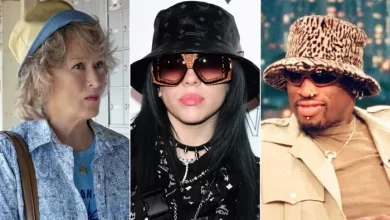“From Birthday Bash to Business Boost: Examining the Legacy of Ntalami’s Unique #MyMadeInKe Celebration”

In the world of social media marketing, innovative strategies constantly emerge, capturing attention and sometimes sparking controversy. Recently, Michelle Ntalami, founder of Marini Naturals, stirred the online community with a unique birthday celebration that raised eyebrows and prompted discussions around the concept of ‘Free Advertising.’ This article delves into the intricacies of Michelle Ntalami’s controversial birthday campaign, exploring the motivations behind it and the broader implications for brand promotion in the digital age.
The Birth of #MyMadeInKe:
Michelle Ntalami, a prominent entrepreneur in the beauty and wellness industry, celebrated her birthday with a twist that left many intrigued. Rather than opting for traditional festivities, Ntalami introduced #MyMadeInKe, a campaign encouraging businesses to submit their products for free promotion on her platform. This unconventional approach raised questions and sparked a myriad of opinions within the online community.
Motivations Behind the Campaign:
To understand the motivations behind the #MyMadeInKe campaign, it is essential to delve into Ntalami’s vision and the ethos of Marini Naturals. Ntalami has been a vocal advocate for supporting local businesses and promoting products that are made in Kenya. The campaign aligns with her commitment to empowering local entrepreneurs and showcasing the diversity and quality of products originating from Kenya.
Ntalami’s decision to use her birthday celebration as a platform for promoting others reflects a strategic blend of philanthropy and marketing. By leveraging her influence and network, she aimed to provide a spotlight for smaller businesses that might otherwise struggle to gain exposure in a crowded marketplace.
Controversy Surrounding ‘Free Advertising’:
While the intentions behind the #MyMadeInKe campaign appear commendable, the concept of ‘Free Advertising’ generated its fair share of controversy. Some critics argued that the campaign exploited the labor and resources of smaller businesses under the guise of celebrating Ntalami’s birthday. Questions arose about the ethical implications of asking businesses to contribute their products without guaranteed returns.
Additionally, concerns were raised about the potential imbalance in the exposure received by different businesses, with larger or more established brands potentially overshadowing smaller, emerging ones. Critics argued that such campaigns could inadvertently perpetuate existing power dynamics within the business community.
Navigating the Thin Line Between Altruism and Marketing:
The #MyMadeInKe campaign prompts a broader discussion about the fine line between altruism and marketing in the age of social media. Brands and influencers often engage in philanthropic activities, leveraging their platforms to support charitable causes or local businesses. However, when the line between genuine support and strategic marketing blurs, it can lead to skepticism and criticism from the audience.
In the case of Michelle Ntalami’s campaign, supporters applauded the initiative as a genuine effort to uplift local businesses, while skeptics questioned whether it was a calculated move to generate buzz around her brand. Striking the right balance between authenticity and promotional intent is a delicate challenge for influencers and entrepreneurs navigating the competitive landscape of digital marketing.
The Power of Social Media in Shaping Narratives:
The #MyMadeInKe controversy highlights the influential role of social media in shaping public opinion and narratives. Social media platforms serve as arenas for discussions, debates, and the amplification of voices. The reactions to Ntalami’s campaign were diverse, with individuals expressing varying perspectives on the intersection of entrepreneurship, altruism, and digital marketing.
This incident also underscores the importance of responsible and transparent communication in the digital age. Brands and influencers must be mindful of the potential impact of their actions, as controversies can quickly escalate in the era of instant sharing and viral content.
Conclusion:
Michelle Ntalami’s #MyMadeInKe birthday campaign serves as a case study in the evolving dynamics of digital marketing, philanthropy, and brand promotion. While the controversy surrounding ‘Free Advertising’ raises important questions about ethics and transparency, it also emphasizes the power of social media in shaping narratives and influencing public opinion.
As the digital landscape continues to evolve, entrepreneurs and influencers must navigate the complexities of online engagement with a heightened awareness of the potential impact of their actions. The #MyMadeInKe campaign, regardless of its controversies, has sparked a valuable conversation about the responsibilities and ethical considerations associated with leveraging personal brands for the promotion of broader social and economic causes.



